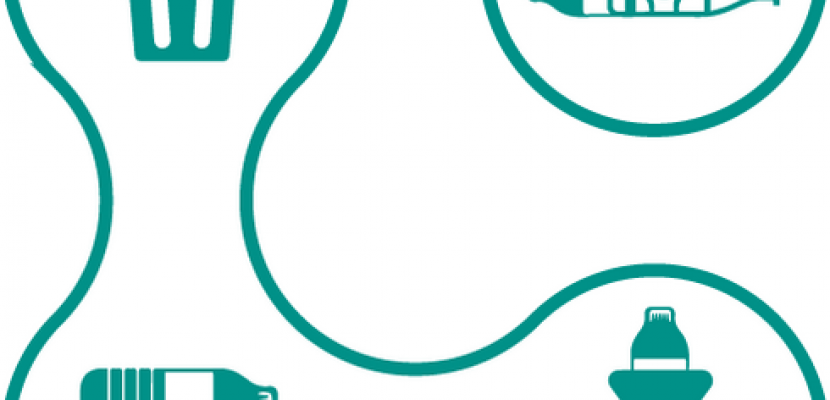Image

Smart CE solution for the management of plastic wastes in Alba Iulia, Romania
Published on 11 January 2022

Romania
Centru
This is the good practice's implementation level. It can be national, regional or local.
About this good practice
Only 29.7% o the plastic waste produced in the EU (25.8 million tonnes) is recycled, this is mainly due to the packaging waste (i.e. main plastic waste fraction). Through this project, a holistic process for increasing the recycling rates of packaging waste is envisaged. The project involves four key steps:
• the 1st step refers to innovative collection systems - smart containers developed within the project, which identify the quantity (using ultrasonic level sensors) and the quality (using a labeling system and RFID card) of packaging deposited into the containers, ensures better separation of plastic waste and reduces the amount of mixed waste generated;
• the 2nd step focuses on transport - by using a special CAN-Buss device, optimized routes, skipping empty containers route, and eco-driving, all integrated into a mobile application – transport fees are reduced and fuel costs are minimized.
• the 3rd step refers to sorting – using innovative technologies (spectrometers), the project aims to increase the quality of the recovered plastic using better separation solutions for different plastics in treatment plants, including multilayer and multi-material packaging.
• the 4th and final step involves reprocessing the materials into products such as automotive parts, foam boards for wind turbines, roofing structures, rubbish bags, asphalt, fences, and benches — helping to ensure items remain in a closed-loop model.
• the 1st step refers to innovative collection systems - smart containers developed within the project, which identify the quantity (using ultrasonic level sensors) and the quality (using a labeling system and RFID card) of packaging deposited into the containers, ensures better separation of plastic waste and reduces the amount of mixed waste generated;
• the 2nd step focuses on transport - by using a special CAN-Buss device, optimized routes, skipping empty containers route, and eco-driving, all integrated into a mobile application – transport fees are reduced and fuel costs are minimized.
• the 3rd step refers to sorting – using innovative technologies (spectrometers), the project aims to increase the quality of the recovered plastic using better separation solutions for different plastics in treatment plants, including multilayer and multi-material packaging.
• the 4th and final step involves reprocessing the materials into products such as automotive parts, foam boards for wind turbines, roofing structures, rubbish bags, asphalt, fences, and benches — helping to ensure items remain in a closed-loop model.
Expert opinion
This practice is in line with the EU Waste Framework Directive, which has set ambitious targets for the preparing for re-use and the recycling of municipal waste of 65% by weight by 2035. Citizens must be engaged in sorting waste and throwing it into the right container. The pilot in Alba Iulia uses a very advanced IT and IoT-based approach to get citizens to sort more and in better quality. Experience shows that the more individualised the containers, the better the quality of the sorted waste fractions. But the smarter solutions come with higher costs, and it is interesting to see where there is a trade-off. For countries that have low separate sorting tranditions, it might be an interesting way forward to rely on highly individualised and controlling waste bins able to identify both user and the fraction thrown into the bin. Optimisation of waste collection logistics through communicating containers is an otherwise proven good practice to bring down collection costs.
Works at
Interreg Europe Policy Learning Platform
Resources needed
15 people directly implicated in local project activities (6 for support); stakeholders support; smart prototypes and IoT platform developed by partners (estimated at > 50,000 euro); truck, CAN-Buss and applications; dedicated containers, communication, and other costs (30.000 euro);
Evidence of success
The pilot implemented in Alba Iulia is an example of collaboration between public authorities, innovators, and the local business community on collecting and recycling plastic waste. Local pilot results:
participants: 254 (1 per family, 456 citizens);
engagement: > 2000 for website and pilot video; 329 Facebook engagement/ > 12.000 reach; offline informative materials: > 3000 citizens
general characterization:12% more plastic
individual characterization:70% better sorting for participants
participants: 254 (1 per family, 456 citizens);
engagement: > 2000 for website and pilot video; 329 Facebook engagement/ > 12.000 reach; offline informative materials: > 3000 citizens
general characterization:12% more plastic
individual characterization:70% better sorting for participants
Potential for learning or transfer
The project has a high potential of transfer in other communities/regions, as demonstrated in 3 different cities and estimated during several replicability workshops. Using the 4 steps method developed within the project, a pilot can be developed in any other geographic area. For a successful implementation, the promoter should take into consideration involving all relevant stakeholders and their roles in implementing the project. The project can be easily scaled up at the city level (as Utrecht is already doing) and the smart containers can be adapted - the level sensors are critical for route optimization; the transceivers are simple to deploy and can be eliminated if an IoT system is already available (like LoRA); the sorting system can be developed with a local waste operator. The platform is critical for citizens’ registration, project management, and reports. In terms of engaging citizens, first contact and registration should be offline and online activities should follow.
Further information
Website
Good practice owner
You can contact the good practice owner below for more detailed information.
Organisation
Alba Iulia Municipality

Romania
Centru
Contact
Head of Office
